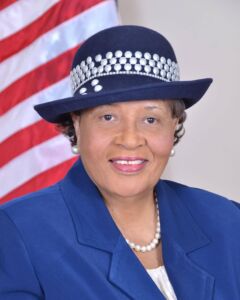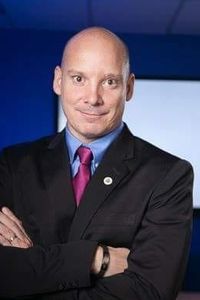2022 Candidate Questionnaire – US Congress
Ahead of Election Day 2022, candidates running for election for U.S. Congress were provided a five-question survey to complete and share their position on arts and culture. Below are the verbatim responses we received, grouped by question.


Alma S. Adams (left) and Shannon Bray, candidates for U.S. Congress.
ALMA S. ADAMS (US House of Representatives, NC-12): As an artist and former art professor at Bennett College for 40 years, not only did I teach art but I was able to share the students’ passion for expression through art. I also served on the Congressional Arts Caucus.
SHANNON W. BRAY (US Senate): I use arts, science, and history all the time. In my technical work, I work with artists to put their work on blockchain technologies in the form of NFTs. I work with several programs such as the US Naval Sea Cadets where I teach naval history and a number of science topics. But I use history and science daily in my political life as well. Most of my platform are built off our history as a country.
As the community’s Local Arts Agency, ASC’s focus is to serve all residents of Mecklenburg County, the city of Charlotte and the six suburban towns, by investing in high-quality cultural programming that is diverse, relevant, resident-informed, and available to all. We intentionally center community, start with partnership (create with, not for), and advocate for equitable distribution of government funds.
What are your arts and culture priorities, and how do you intend to promote or pursue those priorities if elected? (For example: advocate for increased investment, attend cultural events or Culture Blocks programs, volunteer to sit on a grant review panel, or connect with your appointees to ASC’s geographic Advisory Councils)
ALMA S. ADAMS (US House of Representatives, NC-12): This Congress and last Congress, I was proud to introduce H.R. 2380, the Saving Transit Art Resources (STAR) Act, which would eliminate a longstanding prohibition that prevents local transit entities from using their federal transit dollars to support the inclusion of local art in eligible projects. In July 2021 during the consideration of H.R. 3684, I was proud to stand with House Transportation & Infrastructure Chairman Peter DeFazio in ensuring that my bill was successfully included in the House-passed, then-named Invest in America Act. While this provision was not ultimately enacted, I will continue to advocate for arts funding and the inclusion of arts in all applicable federal projects.
SHANNON W. BRAY (US Senate): At the federal level, I will be advocating for the expansion of blockchain technologies and also educating people how NFTs (which are now artwork in 2D and 3D formats) can alter the future of the world. At the federal level, I will be advocating for the expansion of blockchain technologies and also educating people how NFTs (which are now artwork in 2D and 3D formats) can alter the future of the world.
Community Ties: Understanding What Attaches People to the Place Where They Live, an in-depth study published by the Knight Foundation and Urban Institute in May 2020, reports that a community’s residents’ access to arts and culture not only boosts feelings of satisfaction and lifestyle fit, but also correlates with greater investment of time and resources in that community. This investment metric includes participation in local activities, attending public meetings, owning a home or local business, donating, and volunteering.
Easy access to arts and cultural activities is reported by people in low-income households less frequently (67%) than by those in high-income households (78%). Additionally, only 64% of Black residents and 66% of Hispanic residents report easy access to arts and culture, compared to 74% of white residents and other racial and ethnic groups. In the Charlotte-Mecklenburg metropolitan area, arts and cultural activities are perceived as the fourth most difficult quality feature to access in our community, after affordable housing, transit options, and job opportunities.
ASC recognizes that systemic, inequitable access to opportunity has led to generations of unjust outcomes for those who have been historically marginalized in mainstream arts and cultural funding, discourse, leadership and resource allocation. We strongly encourage all who serve or seek to serve our community to read ASC’s inaugural Cultural Equity Report, which reflects the steps – and missteps – we have taken on our journey to becoming a more equitable organization and holding ourselves accountable to the community.
How will you join ASC in actively addressing inequities in access to arts and culture?
ALMA S. ADAMS (US House of Representatives, NC-12): Each year my office offers a congressional visual art competition for schools in our district, sponsored by the Congressional Institute. This competition recognizes talented young artists in the district and creates opportunities for their work to be displayed in DC as well as the chance to win a scholarship. My office invites every CMS high school in the district to participate so that all students, regardless of background or economic status will have the opportunity to share their art talent. Additionally, I will continue to support policy and robust funding for programming that actively seeks to ameliorate the existing inequities in access to the arts.
SHANNON W. BRAY (US Senate): I would be honored to join ASC in the effort to fight inequities in access to arts and culture. There are a number of solutions using technology to build DOAs to help create this access; DOAs can be used for a wide range of fund raising efforts such as road and school building. For more information: Decentralized Autonomous Organization
ASC’s 2020 COVID-19 impact survey showed that more than 90 percent of local artists have been negatively impacted by COVID-19 and experienced a loss of income. The financial impact of COVID-19 on the sector has deeply impacted the livelihood of Mecklenburg’s creative workforce and the economic future of local creatives and cultural sector employees.
It is important to the workers of this sector that elected officials make efforts to understand and address their specific interests and needs.
As an elected official, how will you consider, utilize, and support the creative workers of the cultural sector?
ALMA S. ADAMS (US House of Representatives, NC-12): Creative workers are the backbone of our creative economy, and they deserve to be treated as the essential workers that they are. As the Chair of the Workforce Protections Subcommittee on the House Education and Labor Committee, I will continue to ensure that artists and creative workers receive the full protection of the law to which they are entitled.
SHANNON W. BRAY (US Senate): I’ll piggy back off my last answer.
The U.S. Bureau of Economic Analysis reports that the arts and culture sector contributes $16.5 billion to North Carolina’s economy, representing 2.8% of the state’s GDP and 115,891 jobs in 2020. According to the most recent Arts & Economic Impact Study, nonprofit arts organizations in NC generated $2.1 billion in economic activity annually and generated $201.5 million in state and local government revenue in 2015.
The National Endowment for the Arts (NEA) is an independent federal agency responsible for funding and promoting arts activities in American communities so that all Americans have access to the arts. In FY22, the North Carolina Arts Council received $1,049,400 in federal NEA funds and $902,300 through the American Rescue Plan. ASC relies on support from the North Carolina Arts Council through the Grassroots Arts Program and Artist Support Grant Program to make possible our investments in the creative individuals, artists, and nonprofit organizations of Charlotte-Mecklenburg’s cultural community.
Currently, the NEA is only funded by Congress at 54 cents per American (Americans for the Arts Action Fund, 2022).
If elected, will you support efforts to increase federal arts funding to the National Endowment for the Arts to $1 per American? Please explain your answer.
ALMA S. ADAMS (US House of Representatives, NC-12): Yes, I have long supported robust funding for the NEA, and will continue to advocate for increased funding to the National Endowment of Arts, whose funding is so important to the sustainability of the Charlotte Mecklenburg arts community. An increase in funding means more accessible arts programs to youth as well as the creative arts and cultural community.
SHANNON W. BRAY (US Senate): No; I do not believe the federal government should serve this roll. The roll of the government is too large as it is and we must getting spending under wraps. But what I will do is to help get the money using technological systems such as DOAs and other crypto friendly technologies.
The following candidates did not have campaign contact information available via the Board of Elections or were unable to be reached at the phone number or email address provided:
Tyler Lee (US House of Representatives, NC-12)
Pat Harrigan (US House of Representatives, NC-14)
Jeff Jackson (US House of Representatives, NC-14)
Matthew Hoh (US Senate)
Cheri Beasley (US Senate)
Ted Budd (US Senate)

